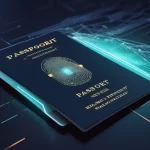Malaysia’s MyDigital ID: Blockchain Security or Centralized Control Risk?

Malaysia’s Digital ID Ambition: Blockchain Breakthrough or Centralized Overreach?
Malaysia is setting a high bar with its plan to digitalize 95% of government services by 2030 under the 13th Malaysian Plan (13MP), hinging on the MyDigital ID platform launched in 2023. Despite integration into 45 online systems, adoption is a dismal 10% among adults, sparking heated debates over trust, privacy, and whether mandating registration is a step too far. For us in the crypto space, this raises big questions about how blockchain tech fits in, and whether this is a win for decentralization or just another state-controlled system in disguise.
- Digital Target: Malaysia aims for 95% government service digitalization by 2030 via MyDigital ID.
- Adoption Struggles: Only 10% of adults have signed up, signaling deep public distrust.
- Blockchain Role: MyDigital ID leverages Malaysia Blockchain Infrastructure and Zetrix for security.
MyDigital ID: The Tech Behind the Vision
Malaysia’s 13MP is a roadmap to high-income status, and MyDigital ID is its digital cornerstone—a single sign-on system meant to streamline access to public and private services. Imagine a one-click gateway to everything from tax filings to healthcare records, already embedded in 45 platforms. But here’s the rub: since rolling out in 2023, only 10% of Malaysian adults have signed up. Turns out, people aren’t exactly rushing to hand over their digital souls to the state, and who can blame them? In a world where data breaches are as common as bad ICOs, centralized systems scream risk.
What’s got us intrigued, though, is the tech under the hood. MyDigital ID isn’t just another government database waiting to be hacked—it’s built on the Malaysia Blockchain Infrastructure, led by MIMOS, a national R&D agency, and powered by Zetrix, a Layer 1 blockchain network developed by MYEG, a major digital services player. For the uninitiated, a Layer 1 blockchain is the base layer that directly processes and secures transactions, much like Bitcoin or Ethereum, ensuring records are tamper-proof. This setup promises enhanced security and a shot at real digital sovereignty—control over data akin to holding your own private keys. Nik Hisham, head of MyDigital ID, framed it boldly:
The main focus of MyDigital ID is to become a real-time digital trust system. As adoption continues to grow, it not only simplifies public access but also strengthens the nation’s digital sovereignty and security.
That’s the kind of talk that gets decentralization fans nodding. With Malaysia losing a staggering RM54.02 billion (about US$12.8 billion) to scams last year—3% of its GDP—and Southeast Asia bleeding up to $37 billion to cybercrime in 2023, often fueled by AI-driven fraud like deepfakes and phishing, a secure identity system isn’t just nice to have; it’s a damn necessity. Blockchain’s immutable ledgers could be the shield against this digital carnage, verifying identities without the vulnerabilities of traditional databases.
Public Trust: The Biggest Hurdle
So why the cold feet from Malaysians? Only one in ten adults trusting MyDigital ID speaks volumes about the nightmare of data leaks and state snooping. Privacy fears aren’t abstract here—they’re visceral. Even with assurances like no storage of biometric data (think fingerprints or facial scans) and plans for a National Data Commission to oversee governance, skepticism runs deep. The government’s hint at making registration mandatory to access services hasn’t helped, as discussed in various reports on MyDigital ID adoption challenges. Dr. Megat Zuhairy Megat Tajuddin, CEO of Malaysia’s National Cyber Security Agency, didn’t mince words:
MyDigital ID is a powerful tool. But its strength lies in its ability to build trust, not enforce compliance.
The Kuala Lumpur-based think tank, Social and Economic Research Initiative (SERI), echoed the sentiment with a sharp warning:
Compulsion before confidence risks undermining the very system we are trying to build.
They’ve got a point. Mandating MyDigital ID feels like forcing someone to store their BTC on a shady exchange—disaster waiting to happen. Trust isn’t coded into a blockchain; it’s earned through transparency and user control, something the crypto community has screamed about since day one. Without it, the 90% sitting on the sidelines might just turn to less secure, underground alternatives, and that’s a bigger mess waiting to unfold.
Blockchain’s Promise vs. Centralized Perils
Let’s not get too starry-eyed about blockchain saving the day. Yes, MyDigital ID’s use of Zetrix and Malaysia Blockchain Infrastructure is a step toward secure, fraud-resistant systems—Zetrix itself uses a robust consensus mechanism akin to delegated proof-of-stake, balancing speed and security for a national-scale ID platform. But at its core, this is still a government-led initiative. Even with blockchain’s tamper-proof design, centralized oversight means the state holds the reins. Could this be a trojan horse for mass surveillance, dressed up in crypto-friendly tech? Imagine a future where blockchain data tracks dissenters or feeds a social credit system—scenarios we’ve seen elsewhere. That’s the kind of heavy-handed nonsense Bitcoin was born to disrupt.
Compare this to fully decentralized identity solutions, like self-sovereign identity projects on Ethereum, where users control their data via smart contracts and zero-knowledge proofs (a cryptographic method to prove something is true without revealing the data itself). MyDigital ID, for all its blockchain flair, doesn’t offer that level of autonomy. Privacy safeguards like encryption standards or user consent over data sharing remain murky—opacity we’re calling out as a red flag, as explored in questions around privacy in Malaysia’s ID systems. For Bitcoin maximalists, this half-measure reinforces why BTC’s trustless design is king; no ID needed when the protocol itself guarantees integrity. Still, for altcoins and DeFi platforms needing KYC/AML compliance, a system like this could streamline access—if it doesn’t morph into a state-controlled gatekeeper.
Regional Race: How Malaysia Stacks Up
Malaysia isn’t alone in this digital sprint. Neighboring Indonesia is pushing its own digital ID project, backed by a $250 million World Bank loan, with six contracts slated for award by late 2025. But procurement irregularities have already derailed 24 contracts, exposing corruption risks that blockchain’s transparent ledgers could squash overnight, as detailed in recent updates on Indonesia’s digital ID challenges. Imagine immutable records of every deal—no backroom shenanigans. Meanwhile, Singapore and the Philippines are the regional gold standards, with mature digital ID systems that Malaysia and Indonesia are scrambling to match. At recent China-ASEAN ministerial events, calls for blockchain-based identity verification to combat cross-border fraud hinted at a future where interoperable IDs could revolutionize everything from trade to DeFi transactions. That’s the kind of disruption we live for.
Back in Malaysia, the public-private partnership driving MyDigital ID adds fuel to the fire. MYEG, with over 20 years in digital services, has teamed up with MyDigital ID Solutions Sdn Bhd, a MIMOS subsidiary focused on cybersecurity, to roll out a Superapp by Q1 2025. It’s a proof of concept aimed at scaling access while prioritizing security, a nod to effective accelerationism (e/acc) that gets us excited, as highlighted in partnership announcements for Malaysia’s digital ID ecosystem. Dato’ Fadzli Shah, co-founder of Zetrix, called it a game-changer:
MYEG’s collaboration with MyDigital ID Solutions marks an important step forward in enhancing Malaysia’s digital landscape and meeting the need for interoperable national digital IDs. This platform will simplify access to digital services while maintaining the highest standards of data security and user privacy.
What’s Next for Malaysia and Crypto?
Peering ahead, MyDigital ID could intersect with crypto in fascinating ways. Picture a Malaysian trader linking their ID to a wallet for seamless exchange access or DeFi onboarding—KYC done in a snap. But without ironclad privacy, it’s a slippery slope to state overreach. Could Malaysia integrate decentralized identity protocols to balance efficiency with autonomy? Or will mandating adoption push citizens to mine BTC just to escape the digital leash? These are the gritty tensions keeping us on edge.
Zooming out, Malaysia’s experiment mirrors a global tug-of-war between innovation and control. Blockchain’s role here is a win on paper, but public trust remains the Achilles’ heel, and centralization risks loom large, much like the concerns raised in public discussions on MyDigital ID trust issues. For us Bitcoin purists, this isn’t directly about BTC, but it’s a loud reminder of why decentralized systems matter—whether it’s money or identity, power belongs to the individual. For the broader crypto ecosystem, from Ethereum’s smart contracts to niche altcoins, this opens a door to rethink trust in a world starving for secure solutions. Malaysia’s digital gamble, tied to broader goals of digitalizing government services by 2030, is one to watch, not just for its tech, but for the lessons it holds for freedom and privacy in our increasingly connected age.
Key Questions on Malaysia’s MyDigital ID and Blockchain
- What is MyDigital ID, and why does it matter to Malaysia?
It’s a digital identity platform launched in 2023, a single sign-on for government and private services, aiming for 95% digitalization by 2030 under the 13th Malaysian Plan to boost national efficiency. - How does blockchain bolster MyDigital ID’s security?
Built on Malaysia Blockchain Infrastructure and Zetrix, a Layer 1 network, it ensures tamper-proof records, vital against Malaysia’s RM54 billion scam losses last year and rising AI-driven fraud. - Why are only 10% of Malaysians adopting MyDigital ID?
Distrust in data privacy and fears of government surveillance dominate, a tension crypto users understand when state control clashes with personal freedom. - Does government-led blockchain undermine decentralization?
Despite blockchain’s secure framework, centralized state oversight risks surveillance, clashing with the autonomy Bitcoin and decentralized tech stand for. - Could digital IDs fuel crypto adoption in Malaysia?
Potentially, by easing KYC for exchanges and DeFi platforms, but only if privacy is non-negotiable—otherwise, it’s just another state-controlled barrier. - What can the crypto space learn from MyDigital ID’s rollout?
Blockchain can transform trust in identity systems, but half-measures under government control highlight why Bitcoin’s trustless model remains the ultimate benchmark.



